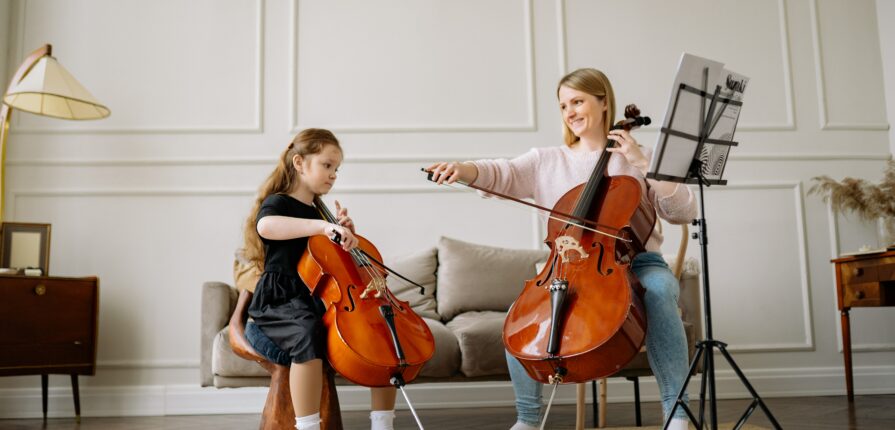Learning a new musical instrument, be it your first or just the latest, takes time and dedication. The process can feel different for kids and adults, but don’t worry, being an adult doesn’t mean you can’t rock it, and starting young doesn’t guarantee you’ll be a maestro. What really counts is how consistent and committed you are to learning. Up next, we’ve got some handy strategies and tips to help you on your musical adventure.
—
Tuesday, October 10th
Strategies for Adult Learners:
The initial step involves a candid discussion with your instructor about your objectives, anticipations, and availability. Are you aspiring to read music and perform Beethoven? Or are you more interested in learning simple chords to strum a few tunes at your upcoming social gathering? Do you wish to join a local orchestra, start a band, or simply seek a creative diversion for post-work relaxation?
Ensure that both you and your tutor are aligned and that your tutor is adept at teaching the genre of music you wish to learn. You’ll likely need a beginner’s guide to comprehend the notes and rudimentary theory behind your performance. After a few weeks of grasping the basics, you should be able to play some straightforward songs.
Take the guitar as an example; mastering 3-5 chords can enable you to perform many different pop songs (though transitioning between chords requires substantial practice!) Piano students can play simple tunes and have their tutor (or guitar-playing buddies) accompany them. Vocal students will focus on matching pitch, controlling breath, setting placement, shaping vowels, and contouring. Your tutor can assist in selecting music that complements your voice and range. Ultimately, your progress hinges on your innate talent (slightly), determination and persistence (significantly), and the time you dedicate to practice. You should notice a marked improvement within a few months, and as with everything, the more you engage in it, the better you become!
Strategies for Young Students:
Parents should play an active role in their young children’s music lessons. Children who have yet to learn how to read will require assistance reviewing their assignments and understanding expectations. It’s beneficial to carry a notebook so that the teacher can jot down what needs to be worked on, along with useful tips related to rhythm, posture, and hand placement. One crucial aspect of music lessons is that they’re mentally challenging and physically demanding, necessitating repeated practice to develop the muscle memory required for success. Initially, your child should aim to practice for 10-15 minutes on most days. Avoid leaving practice until the day before the lesson, as cramming in all the learning is impractical. It’s best to practice the day after the lesson when the teacher’s advice is still fresh in your mind.
Piano students typically use a set of four books (Lesson, Theory, Technique, and Performance) that complement each other, providing varied ways to practice a single skill and thus keeping it interesting. Students of other instruments like guitar, violin, and voice usually have one or two books to work from. A useful practice tip is to have your child play each song as many times as their age (a seven-year-old would play each song seven times). Do ensure they are not rushing and aim to improve at least one aspect each time they play.
A child’s progress is significantly influenced by skills such as finger dexterity, the capability to move each finger independently, natural rhythm, and communication skills with their teacher. Each child learns at their own pace, but most will complete their Level 1 book within 6-12 months. Older children tend to progress much faster.
Remember, a child who takes lessons from ages 9-12 will make far more progress than a child who plays from ages 5-8. Ensure your child remains in lessons long enough to experience the joy of mastering an instrument, which usually occurs around Level 3 of most lesson book series (approximately 2-3 years). After all, you’re investing in lessons, so you’d want your child to reap the cognitive benefits that are often associated with learning music, right?
If your child appears frustrated or bored, discuss with their teacher about incorporating enjoyable repertoire (perhaps music from a favorite movie or video game), or exploring ensemble or performance opportunities to maintain their motivation.
This article is based on “How long does it take to learn an instrument? Tips for success!” published on bucktownmusic.com


